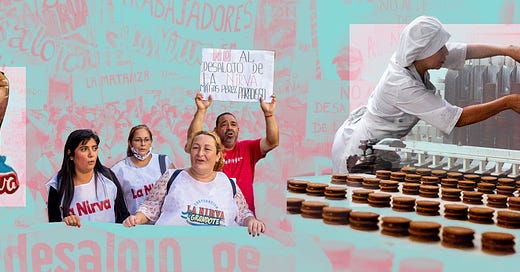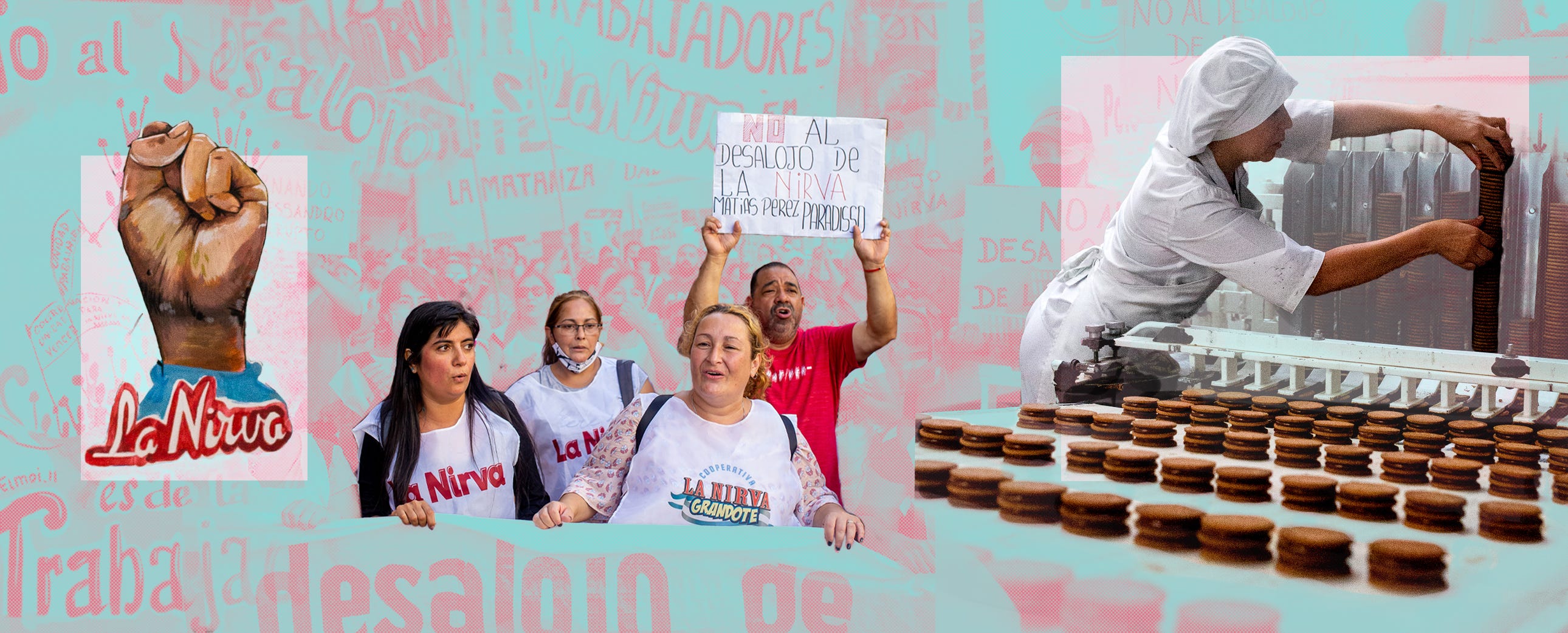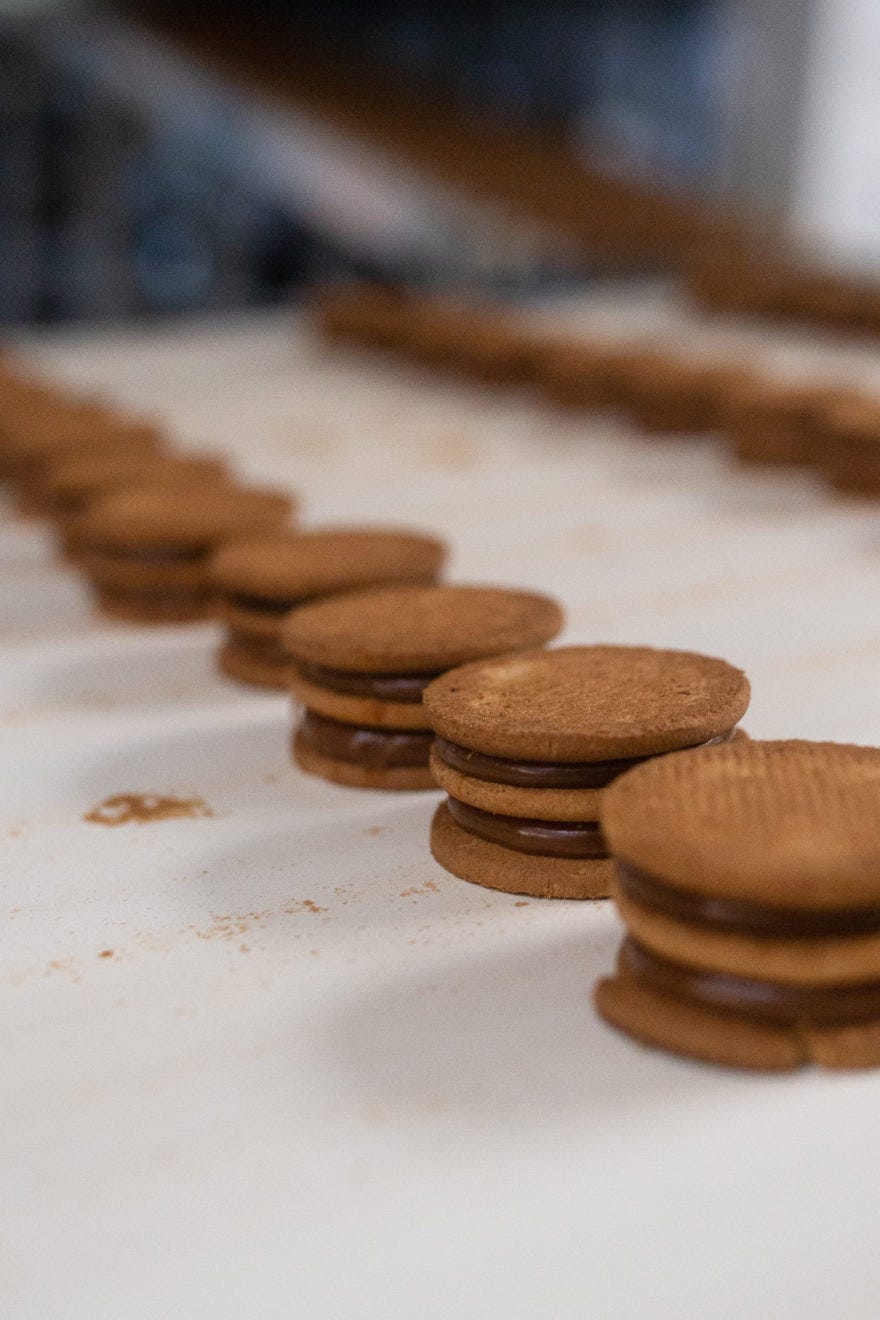Revolución on the Cookie Factory Floor
The new owner of Argentina’s de facto national treat stopped paying his majority-female workforce — so they seized control of the entire operation.
It was a rainy night, and the striking workers took refuge wherever they could — some huddled under a small canopy tent; others beneath beach umbrellas. They were frightened and cold, but this is what they’d voted to do. They were camping outside of La Nirva factory, where they’d all worked long hours for years, each playing their own small part in producing the Grandote alfajor, or “Big One,” a gargantuan chocolate-coated caramel cookie sandwich, and arguably the most popular confection in Argentina. But for more than five months now, the Grandote had disappeared from the market. And the laborers who’d spent much of their lives making these cookies were not happy.
None of them had ever done anything like this before, but the situation was critical. Roughly 80 percent of the workers at the factory were women, and most were the main providers for their families. Many had been with the company for more than a decade. But lately, they were struggling to put food on the table. It had been months since they’d received a full paycheck. Now, in May 2020, as the coronavirus crept into the country, a strict nationwide lockdown was underway. While most of the country hunkered down indoors to stay safe from the virus, these workers were camping out in a last-ditch effort to demand what was due to them.
They did not yet realize the many twists and turns their collective journey was about to take.
Keep reading with a 7-day free trial
Subscribe to Narratively to keep reading this post and get 7 days of free access to the full post archives.





